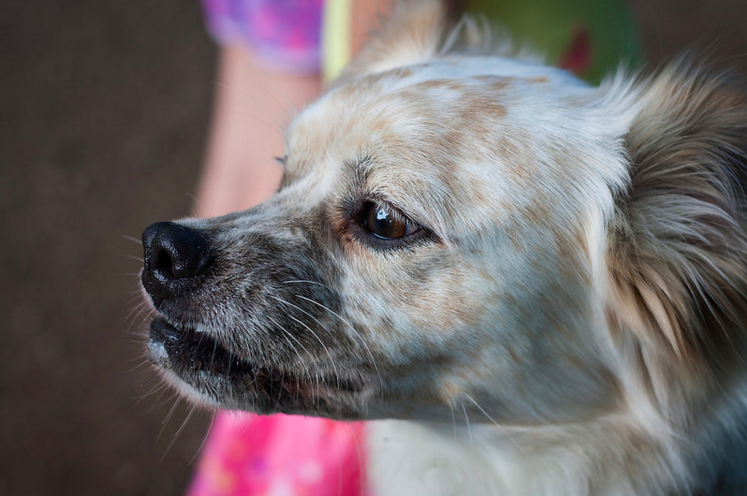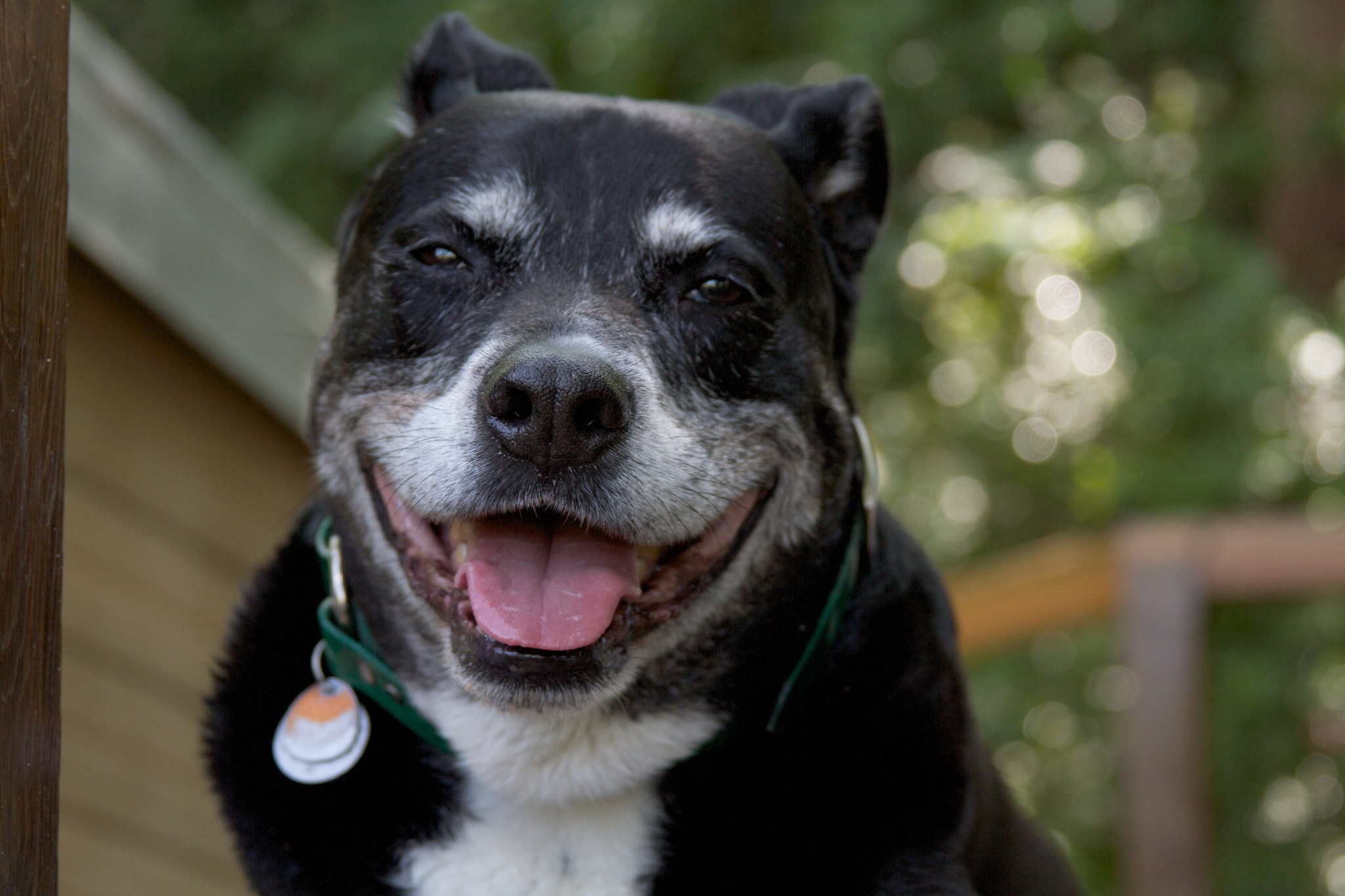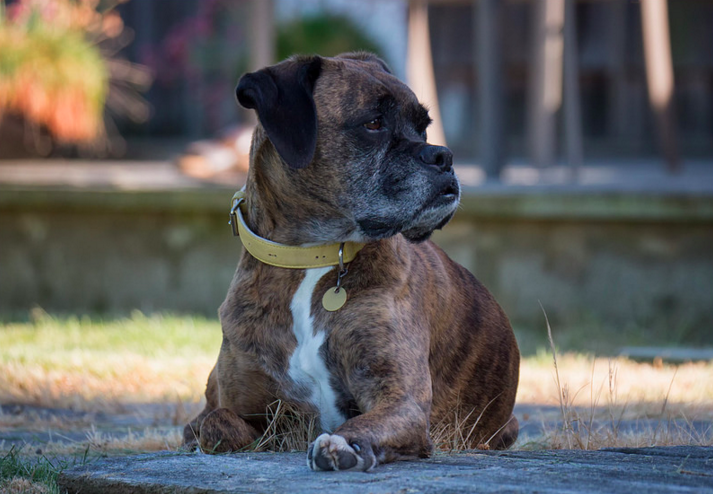How to help an aging dog struggling with bladder control

Sadly, your canine’s golden years might also include golden puddles on your carpet, couch and floor.
Incontinence isn’t necessarily a common occurrence among older pets, but it’s an unfortunate reality that we face as our dogs age.
You’re probably asking yourself where you went wrong: How did your well-behaved senior pup become so nonchalant about using the bathroom indoors? The truth is, your dog probably can’t help it anymore.
It’s important to remember not to punish them. They can’t control themselves anymore and it’s just as embarrassing and distressing for your dog as it would be for you. So, what can you do?
There are solutions available; just remember to be patient. Your dog is learning to use the bathroom in a way that’s entirely different from what they’ve done their entire life. Give them, and yourself, time to adjust.
In short: Your aging dog can’t help their loss of bladder control, but you can make things easier on them and on yourself by using puppy pads or grass pads indoors. Diapers can also help when you’re on the go.
What causes a loss of bladder control?
Aging puts stress on the body and genetic predispositions and years of running, jumping, falling down will eventually catch up with your dog. I’ve personally seen this happen with many of my own pets in the past.
Rottweilers and large breeds, specifically, tend to develop issues with nerve compression and disc degeneration. This in turn creates weakness in the muscles, especially in the pelvic region and the hips. The signals that their nerves usually send to those muscles are lost in translation, so your dog probably has no idea what’s happening until it’s too late.
A urinalysis will be a necessary step in determining the reason behind your dog’s incontinence, as there are a number of other ailments that can contribute to the problem. Urinary tract infections are visible with this kind of testing, as well as cancerous growths and kidney stones.
Most of the time, issues such as UTIs and stones can be treated with medication; afterward, your dog will probably go back to their regular bathroom behavior. If you do find something more significant, though, such as untreatable, aggressive cancer, the best you can do is make your buddy comfortable inside the home.
Health issues with our dogs are definitely a little overwhelming at first. Don’t worry, you don’t have to quit your job to stay home with them full-time. Take a good look at your home: Where does your dog sleep, eat and spend most of their day? You’ll have to place potty pads close that area, or set up a blocked-off space that can be easily cleaned if they don’t make it to the pad.

Be patient with your old dog if they ave bladder issues; it’s not their fault! Image: Pete
How do I help when my dog’s lost their bladder control?
If your pet is making a mess of your home, there are a couple different routes you can take to remedy the problem. First and foremost, provide an indoor area, such as a garage or laundry room that can be easily accessed, and place a potty pad in that location.
The idea is to give your dog a private, easily accessible and clean area to do their business without having to worry about the smell creeping into other rooms of your home. Place pads on flooring with tile, cement or ceramic material as opposed to carpet.
Puppy pads are usually excellent for this, they are both scented and leak-proof. The highly-absorbent material keeps urine from flowing out onto the floor, even if your dog has been holding it for a while.
If you’ve already put down newspaper or other materials for your dog to urinate on, but they refuse to use it, it is likely that they aren’t aware of why you’ve put them down. Puppy pads have a built in smell to attract your dog and encourage them to relieve their bladder.
Try these basic pads from Amazon, which come in a pack of 100 and work extremely well for dogs who are having issues with multiple accidents throughout the day.
One minor downside to pads is that the attractive smell can be taken two ways by your dog. They’ll either use them to go to the bathroom or they’ll use them as a chew toy. While the pads are non-toxic, it can create obstruction issues if pieces of puppy pad are swallowed. If your dog is an avid chewer in their old age, puppy pads may not work very well.
What to do if your dog won’t use potty pads
Since your dog has likely spent years using the bathroom outdoors, urinating inside on a paper pad might feel uncomfortable and unfamiliar. Believe it or not, animals are just like us in the sense that they separate their living quarters. They don’t want to eat, sleep, play and use the bathroom all in one spot, especially senior dogs who are accustomed to keeping the facilities and their food bowls in different areas.
For this, try grass pads instead! They create a much more “natural” environment, and unlike potty pads, they can be reused and rinsed off outside. They can still be kept indoors, and the scent of fresh grass is encouraging for your dog since it closely resembles their regular routine.
Grass pads usually have a collection tray below them to prevent leakage, you can take them outside, pull the tray out and rinse it down to keep it clean and fresh. If you do decide to purchase these, keep in mind you will have to clean it out or rinse it daily. Failing to do so could result in mold growth and cause further health problems for both you and your pet. Do not allow urine to build up in the tray; it will ruin your grass pad and create a foul smell in your home.
Although the upkeep for grass pads can be a bit irritating at first, they last longer than disposable pads and save you money in the long run.
Try Fresh Patch Grass Pads, which have hydroponic roots and absorb urine to help neutralize odors and reduce buildup. You should still rinse them every so often just as a precaution. Remember, your dog will be using this every day, so you don’t want their paws to get too dirty.
Like puppy pads, you may or may not have an issue with your dog trying to eat Fresh Patch Pads. When dogs have upset tummies, they eat grass to settle the irritation and to regurgitate whatever is making them feel ill. Keep an eye on your dog for the first few days to a week while they adjust to grass padding. As long as they don’t try to eat it, this pad should work just fine!
If want to learn more about grass pads for your dog, check out our review article.

If your dog is struggling to make it outdoors, give them somewhere to go indoors. Image: marneejill
If you’re still struggling with pads, there are other options
Your senior dog might not enjoy using potty pads or might even refuse to use them. If so, try using diapers; it might seem a bit silly at first, but it’s actually very common. Diapers are often used by rescue groups to conveniently care for incontinent dogs.
When you have several animals living in your home and one of them is peeing on the floor, your other dogs might walk through it and create a bigger mess. As a last resort, you can put a regular baby or adult diaper on your pet. This will at least give you some control over the situation.
The downside to diapers is that if your dog is urinating frequently throughout the day, they might fill it up while you’re away, causing leakage and a foul smell. Make sure you only use diapers when absolutely necessary, for car rides or running to the grocery for an hour or two.
Get the right tools for sanitation
Since your dog won’t be able to hold in their urine or may not be aware of it, you’ll likely end up with an unpleasant cleanup. It doesn’t have to be this way. Just follow the same routine that would be used in a veterinary office or in rescue groups.
Create a quarantined area when you aren’t home. It sounds extreme but you don’t want your pet trekking waste through your home. Keeping them secluded prevents bacteria from spreading and from making you or your pet ill. When you get home, remove your dog from the area and clean them up as needed.
Then, use a one-part bleach, one-part water mixture to clean and wipe down the entire quarantine space. Spot cleaning might seem easier, but in the long run you’ll end up with a foul stench that radiates through your home. Don’t allow urine to build up; it’s better just to do a deep clean each time.
If you have a large breed who requires a lot of space (like a patio or specialized living quarters), a hose, a floor scrub and a squeegee will save you a lot of time. Consider setting up a bleach bucket to dip the soles of your shoes in after cleanup.
Know when it’s time to move on
Even if you put your best foot forward and make all the best efforts, your dog is going to get older. At some point, you may come home to your pet lying in waste because it is just too painful to get up and move.
This is not an ideal situation for you or your dog, and old age is inevitable no matter how many vet appointments you make. They’re too uncomfortable, or in so much excruciating pain that they are unable to care for their own basic needs. Your dog might even try to drink less water, urinate less or hold it in until they cannot anymore just to avoid having to get up and move.
Even if you are able to stay home all day with them, your dog won’t be living the best quality of life anymore. While it might be sad and emotionally painful, the best thing to do at this time would be to humanely euthanize your pet. Potty pads, grass pads and diapers are great for dogs who can still get up and walk. Once they can’t anymore, it’s time to say goodbye and send your senior dog across the rainbow bridge.
-Chloe Weaver
Chloe Weaver is a kennel technician and long-time dog owner. She currently has a 4-year-old Labradane and a 7-year-old Staffordshire mix. As a lifelong animal lover, she has volunteered for several rescues and helped to foster dogs and cats.
Featured image: Derek Bruff
